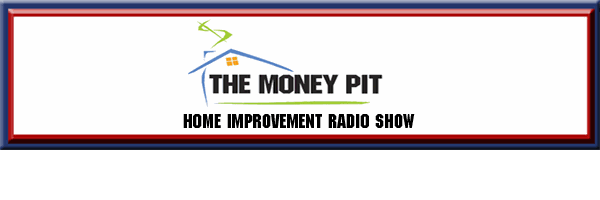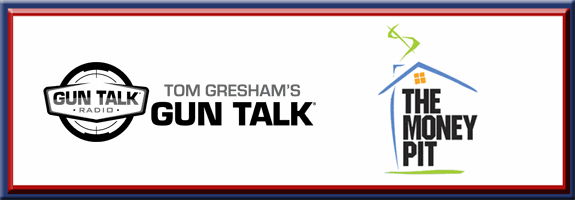By Holland Cooke
Consultant
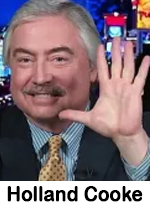 She was the agent I enjoyed working with most over three decades I was an active real estate investor. We remain good friends, and her technique informs the work I do coaching agents – and attorneys and financial advisors and other professionals – who host ask-the-expert radio shows.
She was the agent I enjoyed working with most over three decades I was an active real estate investor. We remain good friends, and her technique informs the work I do coaching agents – and attorneys and financial advisors and other professionals – who host ask-the-expert radio shows.
Understand the difference between “advertising” and “marketing”
Achievers like Connie do. Do you? Erroneously, these terms are often used interchangeably.
— Advertising asks shoppers to pick your product off a crowded shelf.
— Marketing makes them want to.
High-volume agents typically allocate 30% of net income to marketing, which produces leads. Lower-volume agents spend as much, or more, on advertising, which produces fewer leads. If you’re handing out mouse pads in the era of iPad, you’re late.
And you’re bucking human nature: Every…single…day, we are bombarded by SO many advertising pitches, that we lean-back-from commercials. But we lean-into storytelling, when the story hits home. One of the few things that can keep someone sitting in a parked car with the key on Accessories is the on-air attorney untangling the caller’s dilemma when it is REAL relatable.
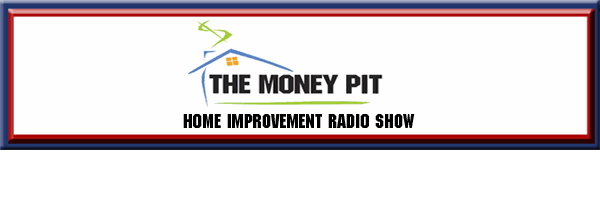
“Can you recommend a plumber?”
The caller isn’t Connie’s client…yet. The stranger got her name from someone else Connie had helped. Reputation. Word-of-mouth. “Got a pen?” she asks. “I’m going to give you his cell number. And let me know if he can’t help you and I’ll recommend someone else who’s helped me lately.” THAT is marketing GOLD. Instant relationship.
As is the attorney whose weekend call-in show offers that “the lawyer is in, the meter is off.” One that I coached offers words-to-live-by: “If you want someone to think you can help them, help them.”
Expensive syndicated TV spots – or hokey locally produced ads – and look-alike billboards – all blur-together in a wall of noise. As do agents’ radio copy that “If I can’t sell your house, I’LL buy it!” and attorneys hedging that “If we don’t win, you don’t pay.”
Yes, advertise. But rather than squandering that airtime touting yourself, do a commercial disguised as an informative feature, snack-size how-to guidance. And offer more-about-that in a free download checklist or podcast or other asset on your memorable domain name website. Or “Ask me!” by calling your memorable phone number. Tell ‘em, rather than just trying to sell ‘em, and you’ll sell more of ‘em.
Big-spending competitors look alike. You can sound different.
It’s the oldest, most-proven concept in marketing: Free samples, of your expertise and comforting counsel. Your trusted voice can differentiate you. Done right, these shows have callers asking, “May I call you at the office on Monday?” even before the host invites them to. BUT…
In too many cases, that weekend show is a well-kept secret, under-promoted by the station, and only available in real-time…UNLESS…the radio show is just one element of a coordinated interactive multi-platform strategy, which harvests and addresses your prospects’ relatable concerns via podcast, social media, email, those commercials I describe above, and a voicemail tactic SO obvious that few spot the opportunity.
Lots of work? You bet! An organized production routine is key. Find a producer – a Robin to your Batman – who can keep that conveyor belt humming, and he or she is every bit the hero as Connie’s plumber.
Holland Cooke (HollandCooke.com) is a consultant working at the intersection of broadcasting and the Internet. He is the author of “Spot-On: Commercial Copy Points That Earned The Benjamins,” a FREE download; and “Multiply Your Podcast Subscribers, Without Buying Clicks,” available from Talkers books. Follow HC on Twitter @HollandCooke
Share this with your network




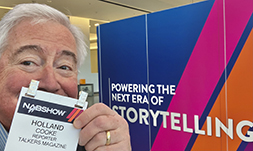 Radio sells advertisers our listeners’ attention. For a hundred years, our inventory has largely been commercials. Now, as our wandering audience leads us to more revenue channels, are we hooked on spots?
Radio sells advertisers our listeners’ attention. For a hundred years, our inventory has largely been commercials. Now, as our wandering audience leads us to more revenue channels, are we hooked on spots?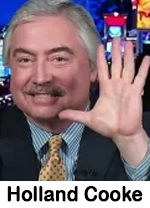 We – inside-the-box – live and breathe radio. Listeners have their hands full just living and breathing. Their day is time crunched and financially challenging, and we want to be its soundtrack.
We – inside-the-box – live and breathe radio. Listeners have their hands full just living and breathing. Their day is time crunched and financially challenging, and we want to be its soundtrack.
 Having written thousands of commercials and promos, I’ve become a copy connoisseur. And, admittedly, a tough grader when it comes to delivery. Sell me and you’re good.
Having written thousands of commercials and promos, I’ve become a copy connoisseur. And, admittedly, a tough grader when it comes to delivery. Sell me and you’re good.
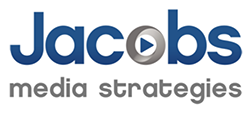 respondents are most likely to say they use it at least weekly. There’s a strong feeling the government will need to step in to provide legal guard rails for AI use. Three in four (75%) are looking for some form of regulation. In fact, more than a third (36%) believe AI will need to be highly regulated. That perception may be fueled by the upcoming elections this November. About half (51%) say they’re very concerned about how AI might affect this fall’s political races. Members of the Greatest Generation and Boomers are most fearful of how the technology might influence upcoming elections. When it comes to three applications for radio – AI hosts, AI-voiced commercials, and AI-voiced station IDs – the biggest pushback predictably is directed at the idea of radio using cloned voices to take the place of live talent. Three in four (75%) raise the red flag over this AI application. Concern lessens when it comes to AI voice technology being used to read commercials. Still, nearly four in ten (39%) say they have big issues with radio stations they listen to using AI in ads. Respondents are most open to the idea of AI voices being utilized on station identification. Overall, about one-third (34%) have no problem, but a similar sized group (30%) expresses major concerns with this use case for AI. Jacobs Media general manager Paul Jacobs remarks, “It is still early days for AI in radio, but broadcasters need to respect the many concerns voiced by core fans of the medium. Up to now, many decisions have been made in a vacuum. Now the audience has a voice. We’ll be tracking their perceptions in Techsurveys in the coming years as the technology matures. The format level data for AI should provide welcome feedback for radio managers trying to get a handle on AI.”
respondents are most likely to say they use it at least weekly. There’s a strong feeling the government will need to step in to provide legal guard rails for AI use. Three in four (75%) are looking for some form of regulation. In fact, more than a third (36%) believe AI will need to be highly regulated. That perception may be fueled by the upcoming elections this November. About half (51%) say they’re very concerned about how AI might affect this fall’s political races. Members of the Greatest Generation and Boomers are most fearful of how the technology might influence upcoming elections. When it comes to three applications for radio – AI hosts, AI-voiced commercials, and AI-voiced station IDs – the biggest pushback predictably is directed at the idea of radio using cloned voices to take the place of live talent. Three in four (75%) raise the red flag over this AI application. Concern lessens when it comes to AI voice technology being used to read commercials. Still, nearly four in ten (39%) say they have big issues with radio stations they listen to using AI in ads. Respondents are most open to the idea of AI voices being utilized on station identification. Overall, about one-third (34%) have no problem, but a similar sized group (30%) expresses major concerns with this use case for AI. Jacobs Media general manager Paul Jacobs remarks, “It is still early days for AI in radio, but broadcasters need to respect the many concerns voiced by core fans of the medium. Up to now, many decisions have been made in a vacuum. Now the audience has a voice. We’ll be tracking their perceptions in Techsurveys in the coming years as the technology matures. The format level data for AI should provide welcome feedback for radio managers trying to get a handle on AI.”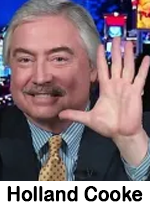 If you’re a news/talk station, don’t assume that you own “news radio” in your market. Imaging is important, but it merely talks-the-talk. You walk-the-walk with local news copy that delivers what solid commercial copy does: benefits. Just doing local news makes you special. But do listeners simply hear a station voice… reading something? Are you merely… accurate? Or do you deliver “take-home pay,” unwrapping the story to tell the listener something useful?
If you’re a news/talk station, don’t assume that you own “news radio” in your market. Imaging is important, but it merely talks-the-talk. You walk-the-walk with local news copy that delivers what solid commercial copy does: benefits. Just doing local news makes you special. But do listeners simply hear a station voice… reading something? Are you merely… accurate? Or do you deliver “take-home pay,” unwrapping the story to tell the listener something useful?
 She was the agent I enjoyed working with most over three decades I was an active real estate investor. We remain good friends, and her technique informs the work I do coaching agents – and attorneys and financial advisors and other professionals – who host ask-the-expert radio shows.
She was the agent I enjoyed working with most over three decades I was an active real estate investor. We remain good friends, and her technique informs the work I do coaching agents – and attorneys and financial advisors and other professionals – who host ask-the-expert radio shows.
 Mark Twain reckoned that “the difference between the almost right word and the right word is the difference between the lightning bug and the lightning.”
Mark Twain reckoned that “the difference between the almost right word and the right word is the difference between the lightning bug and the lightning.”
 Ever lost your phone? It’s an instant sick, sinking feeling. It’s quaint to even call it a “phone,” because it’s…everything. Including us. Like the transistor radio Boomers toted in our youth, it’s audio in your pocket.
Ever lost your phone? It’s an instant sick, sinking feeling. It’s quaint to even call it a “phone,” because it’s…everything. Including us. Like the transistor radio Boomers toted in our youth, it’s audio in your pocket.